



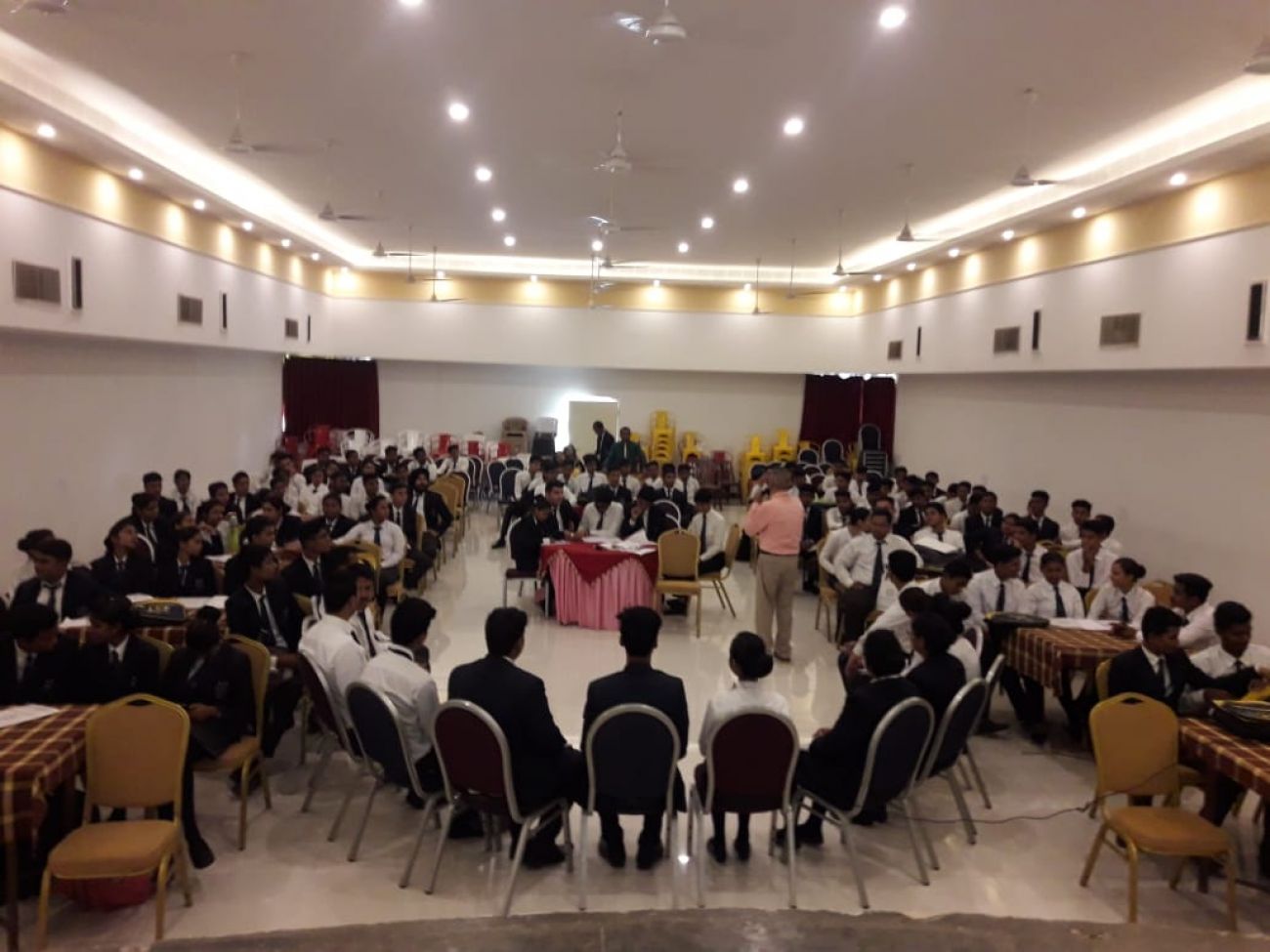
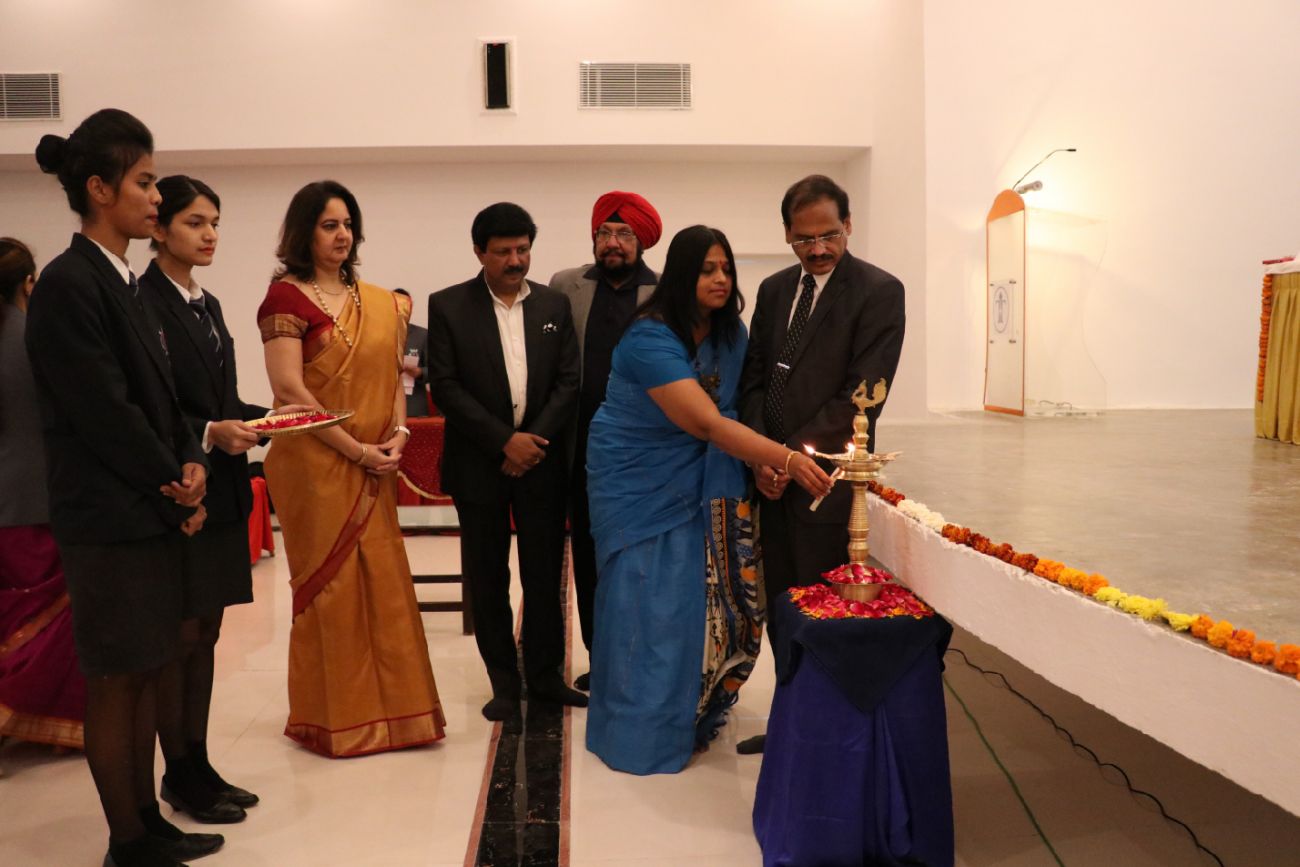
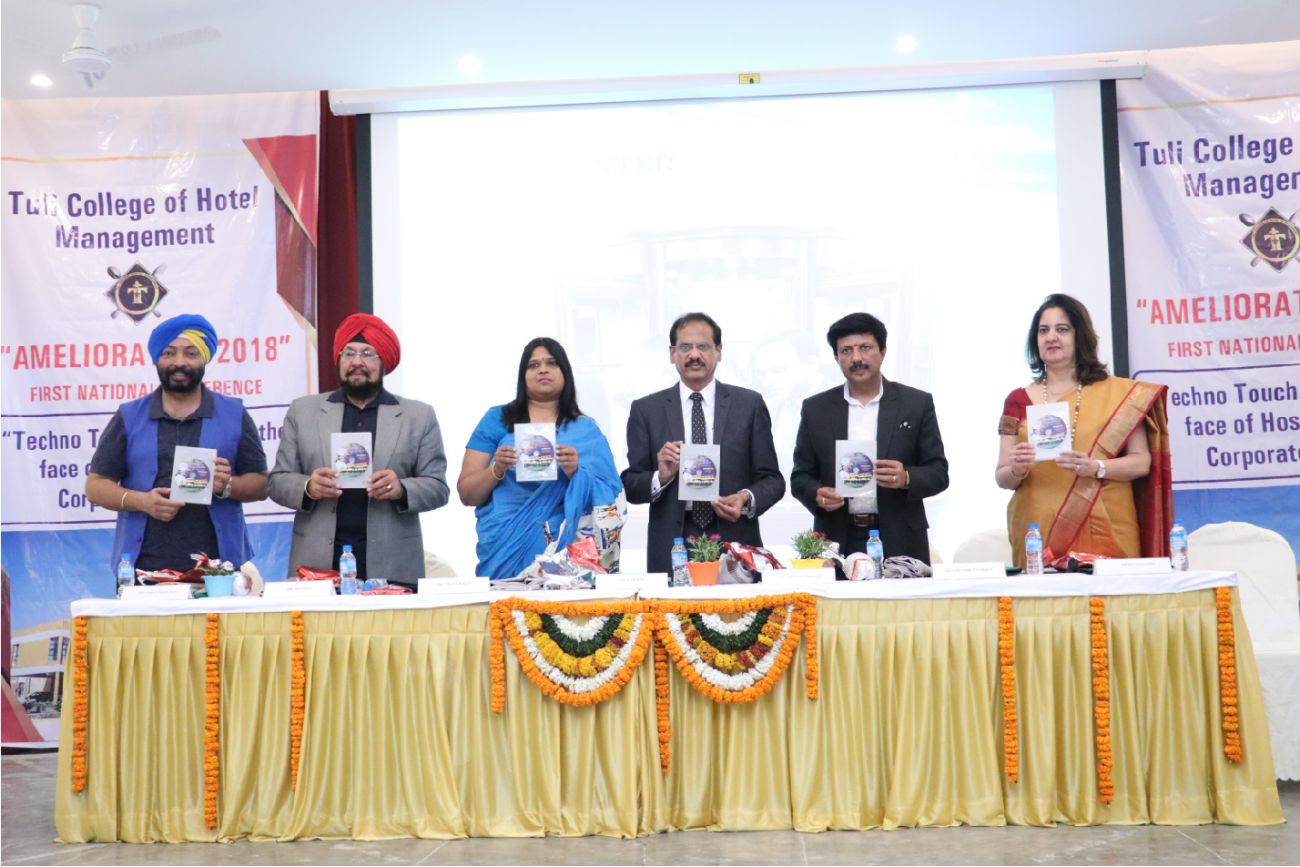




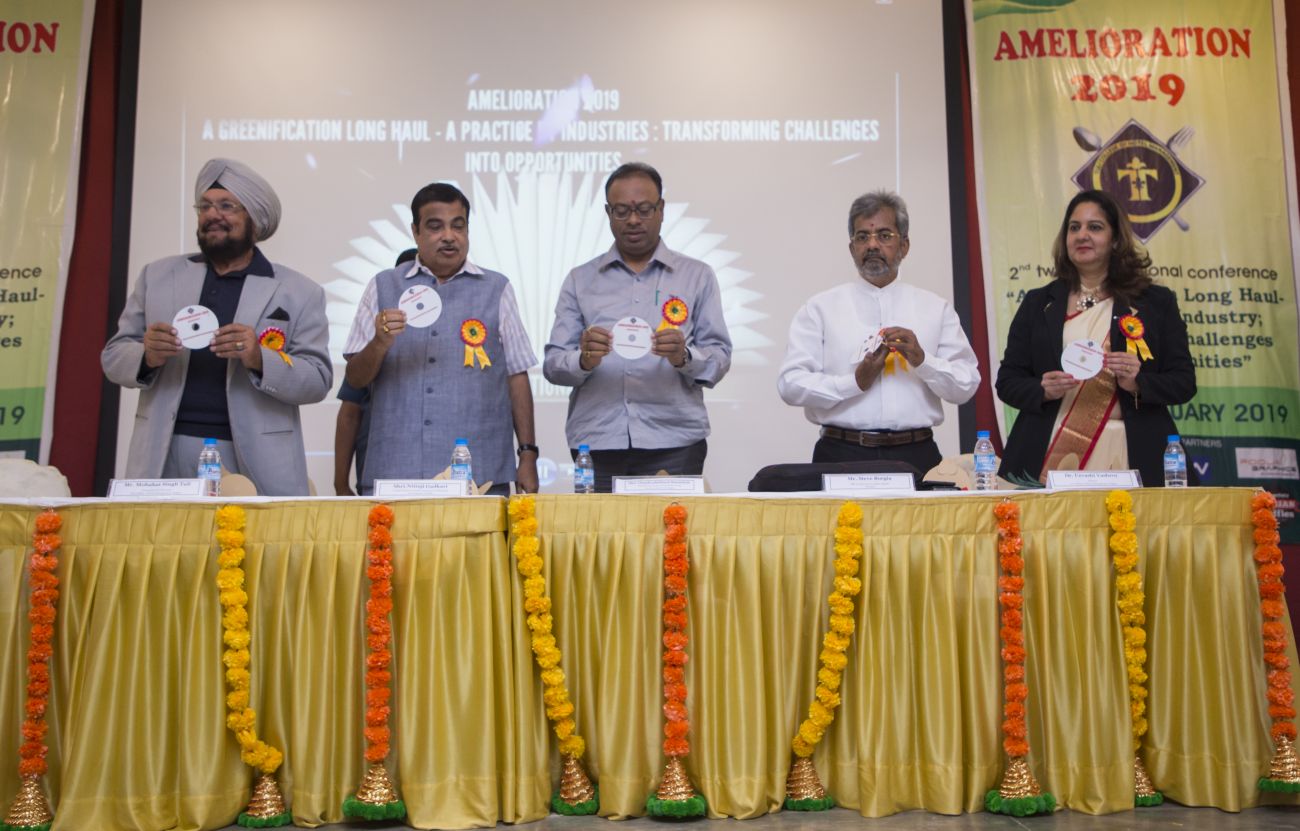
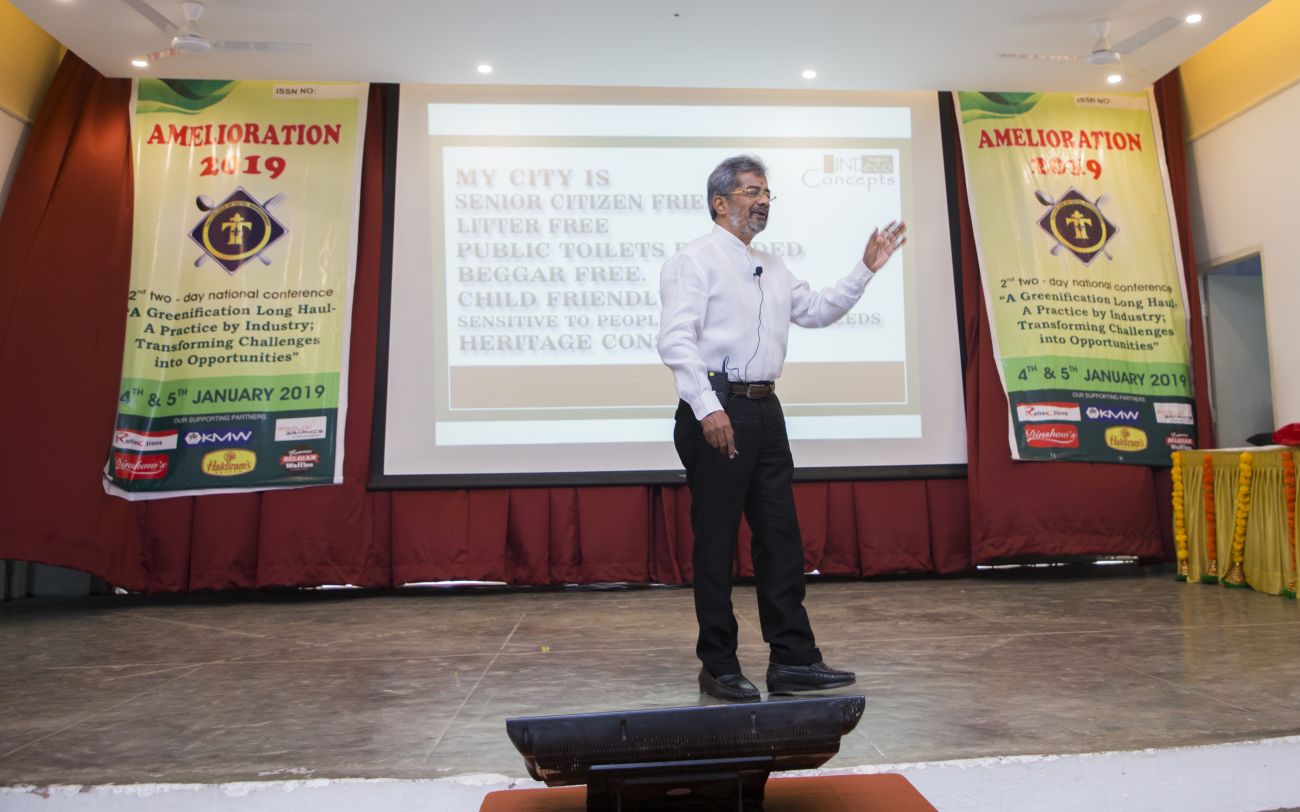
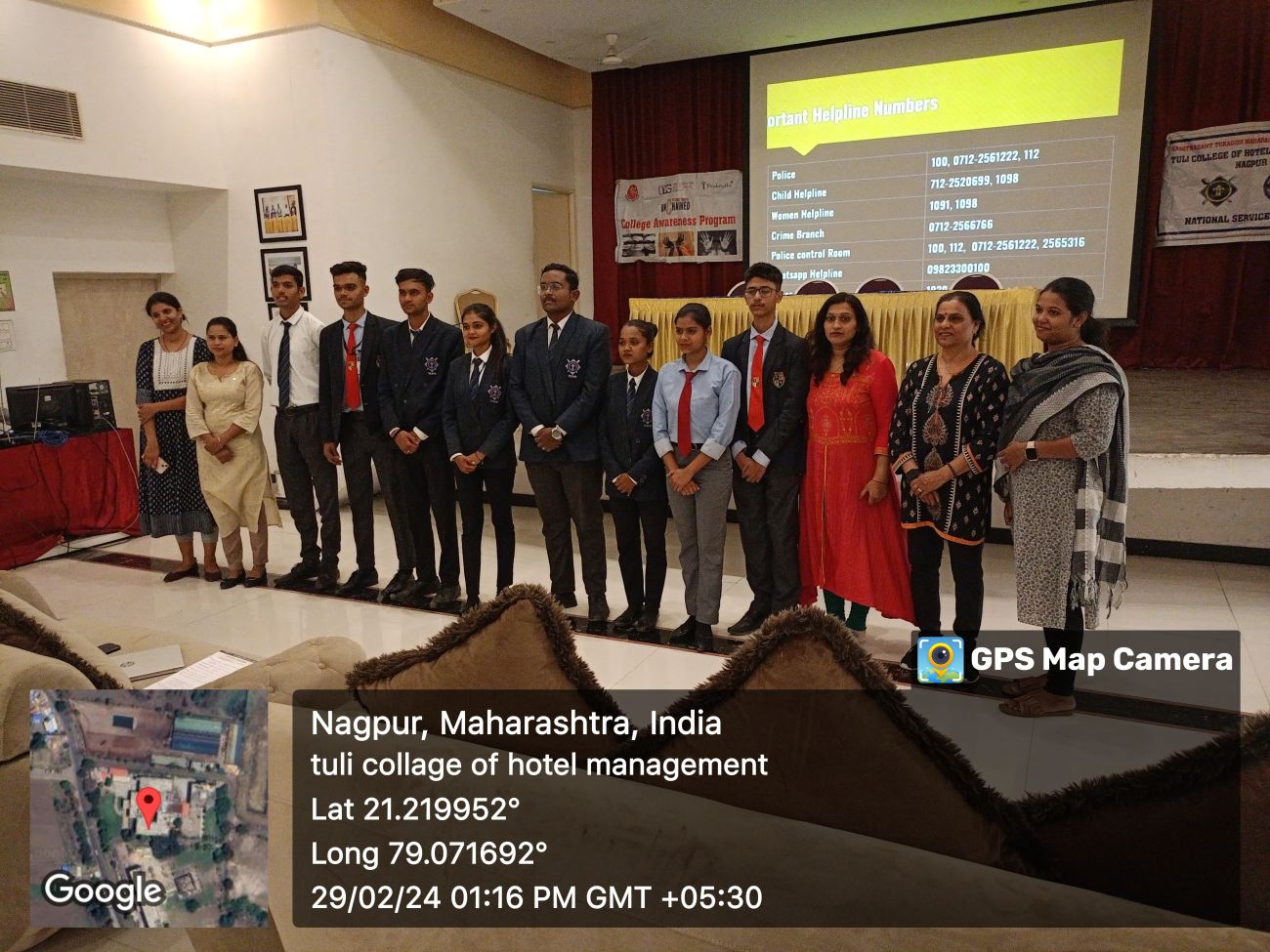
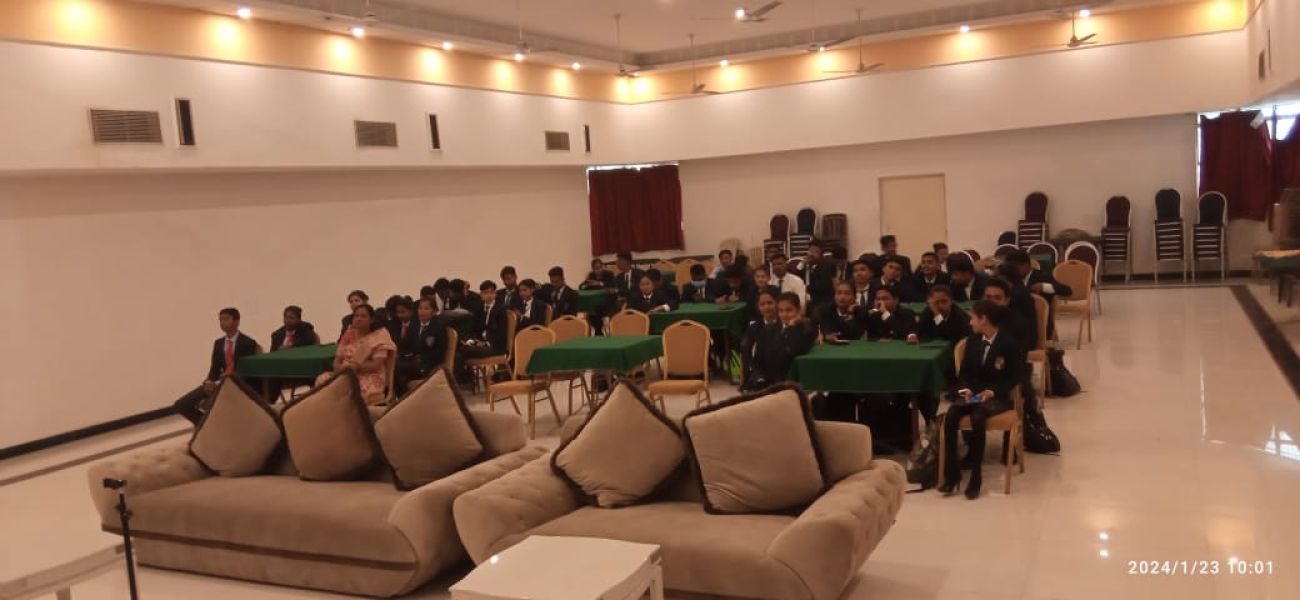
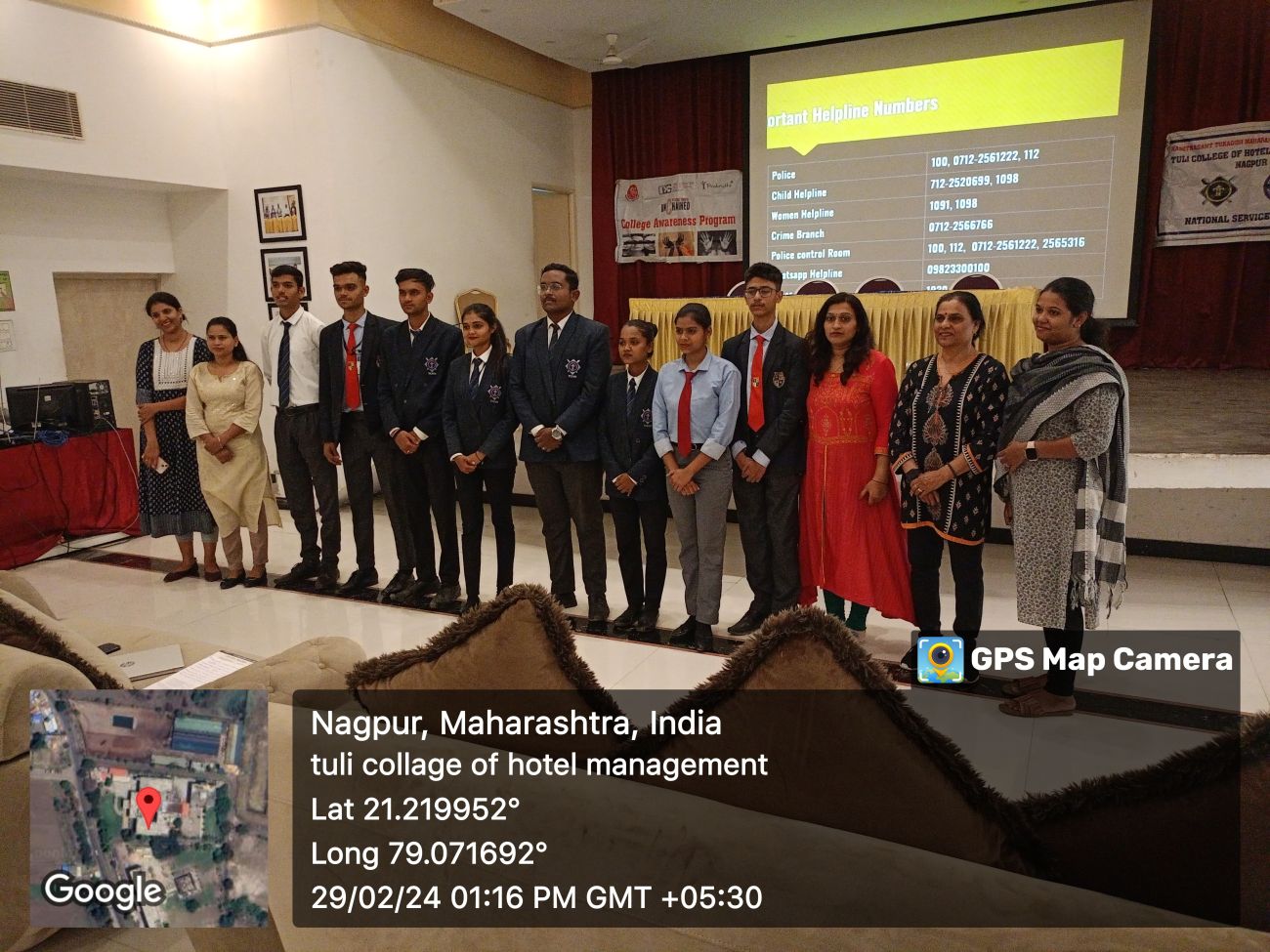
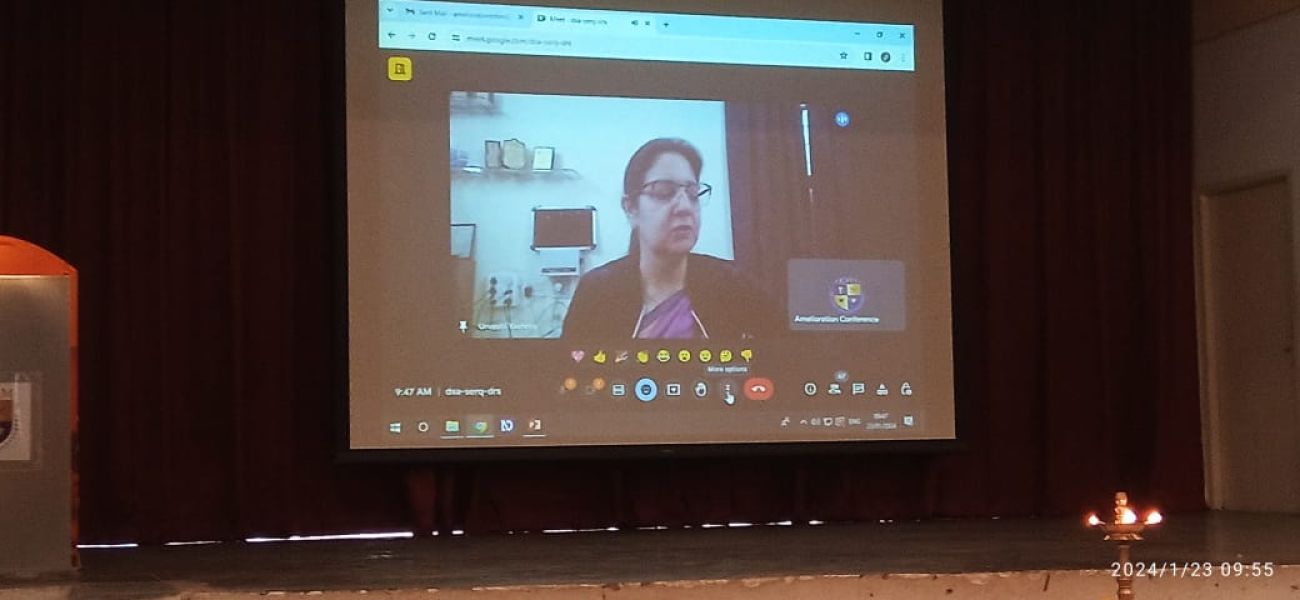
Dr. Urvashi Yashroy
Postal Address:
Tuli College of Hotel Management
Tuli Edu City, Near Koradi Octroi Post, Bokhara Road,
Nagpur – 441 123
Ph. No. - +919422114055
e-mail : urvashiyashroy@gmail.com
ABSTRACT
Once long ago, hotels, motels and other hospitality businesses occupied a fairly simple space in people’s lives—they were a place for guests to lay their heads away from home. But anyone who’s spent time in the hospitality industry in the last several years knows that the role of technology in hospitality businesses has drastically expanded.
In many cases, they’re becoming hubs of activity unto themselves. Most of this activity relies directly or indirectly on technology, making IT more important to hotel operations and the guest experience than ever before.
So we’re here to explore top communication technology trends in hospitality today.
Check them out.
Think about which ones make sense for your business.
And if you see an opportunity, you can get out in front and begin planning accordingly.
After all, in life “Every thing is fair in love and war”
Same way in hospitality, “Every advantage counts.”
Many such technological changes now dance on guest’s fingers
Lets start with a few
MOBILE DEVICE AS A DOOR KEY
It’s fascinating that a function as simple as a door key could undergo so much evolution. But the tool that once started as a carefully shaped piece of metal quickly turned into electronic key cards, and is set to shed its physical form altogether. The next evolution of the hotel key transforms it into data on a guest’s mobile device.
AUTOMATION
Self-service is in. Today, many guests prefer technology over human interaction for simple tasks. Remote check-in and check-out options are becoming popular, and some hotels are beginning to work with apps that let guests order room service right from their mobile devices. There’s a whole range of basic guest requests that can be automated with the right technology, which lessens the burden of human interaction and leaves hotel staff up for other activities that enhance the guest experience. And the trend is only going to accelerate.
FIXED-MOBILE CONVERGENCE
Once upon a time, people used their room phones. However, the pervasiveness of mobile devices has relegated the conventional room phone to a vastly reduced role. But that doesn’t mean it doesn’t have a role moving forward. The room phone of the future may serve as a hub for a larger connected experience. Eg laundry reminder, wake-up calls etc
It may sound like science fiction, but many of the pieces of this scenario are already available or in development. The guest of tomorrow will be more connected than ever before.
APPS
The vision of the connected guest entails nearly every aspect of the guest experience. Something as complex as that needs a single hub from which to operate—and guest apps for personal mobile devices are the natural place to host all of these functions. A smartly designed guest app combines everything from deal notifications to hotel services to loyalty programs. If you see a guest used the group rate for a conference, you could use the app to electronically send your guest the event itinerary, complete with a map of meeting spaces where sessions will be held.
Most major hotels have some element of this picture in play already, and they’re adding capabilities every day. Some of the major flags are closer, but much of the technology and integration is still in development
Regardless of who gets there first, one thing is certain—the hotel with a truly connected experience will be full of very happy, very empowered guests.
BATTLE FOR BANDWIDTH
A smart phone. A laptop. A tablet. An e-reader. It seems like hospitality guests bring every Internet bandwidth-sucking device they own when they travel. And whether they’re travelling for business or pleasure, you can bet you’re going to hear about it if they can’t connect as quickly and reliably as they’re used to at home. But a hotel is not a home. You have to multiply those data needs by dozens, if not hundreds, of guests—possibly thousands if you land a big conference. It’s a huge strain and one that many of the best hospitality brands are working on. Whatever your solution, rest assured, the demand for bandwidth at hotels is only going to grow.
TECH LOUNGES
Airline check-ins. Local info guides. A place where guests can get out of their rooms but still access Wi-Fi to relax or get work done. The use cases for technology in hospitality seem to grow every year, and savvy hospitality businesses are transforming these guest desires into stylish semi-public spaces where guests can engage tech on their terms. Many guests are even beginning to include these kinds of technologies in their online hotel search criteria, so hospitality businesses that lack them may eventually find themselves at a disadvantage
TECH-ENABLED MEETING SPACES
The modern meeting space has evolved. No longer is it about tables and chairs and nice serving carts. Modern meetings run on technology. Business people need to make multimedia presentations and videoconference remote attendees—sometimes both simultaneously.
And for the marathon meetings, they’d like access to services like catering with minimal interruptions. Most of all, smart hotels know they need these spaces to be as user-friendly as possible. The A/V rooms of the past that required dedicated engineers are no longer an option.
If you think these kinds of business needs are limited to boardroom-style conference spaces, you’re missing an important part of the picture—business customers are increasingly asking for advanced technology enablement in ballrooms and event halls, as well.
SOCIAL LISTENING
Guests have a lot to say about their experiences at hotels, but they don’t always say it directly to you. And in a hospitality world where word of mouth and online reviews have more influence every day, it’s one of the reasons that more and more hotels have started investing in social listening tools. These tools allow hotels to find out about guests’ wants, needs, desires, complaints and more—and jump into the conversation if it makes sense. Some even let you keep an eye on the competition. The Internet is treasure trove of business intelligence if you know how to look.
Technology has become critical to attracting and retaining hotel guests, and today that means investing in a wide range of solutions that create immediate and personal engagement. With rising expectations, surprise and delight has been replaced by expected and assumed. Reservations must be easily made via any smart device, guestrooms must facilitate any type of content, networks need to be rock-solid, and data is now your most valuable asset.
To meet escalating guest expectations, 54% of hotels will spend more on technology this year, according to HT’s 2016 Lodging Technology Study. Their biggest priorities for technology spending, in order, are: payment security, guest room tech, bandwidth, and mobile engagement
Mobile solutions in particular will dominate the list of capital investments this year — six of the top new rollouts have a mobile component, ranging from mobile keys, to mobile payments, to location-based technology. Also high on to-do lists are improving data accessibility and security.
In this mega-trends special report, Hospitality Technology pulls together data from its 2016 Lodging Technology Study, combined with insight from industry thought leaders and hoteliers, to find more about, what’s shaping technology spending today.
According to PhoCusWright, 87 percent of TripAdvisor users feel more confident in their decision when they read travel reviews, and 98 percent say they find them “accurate of the actual experience.” Similarly, according to LateRooms, 90 percent of travelers avoid booking hotels labeled as “dirty” in online reviews.
With consumers committed to in-depth research before making travel decisions, the balance of power has now unquestionably tilted toward guests, as hotels must work even harder to exceed expectations and solve service problems as they occur. The threat of a poor social media review is a highly powerful tool to the consumer, and hotels must now think twice as to the negative implications of bad reviews to potential future reservations when making guest compensation decisions.
The hospitality industry is a dynamic environment in a constant state of movement and evolution. Through technology, the last several years have witnessed the industry change at an unprecedented pace. To be successful in the hospitality industry in today’s landscape, those entering the field must be open to using a variety of new tools to ensure satisfaction in both leisure and business travelers.
The prevalence of social media has radically changed the relationship between guests and hoteliers. Through social media, guests and potential guests can share experiences with each other and exchange information on room rates, hotel amenities, and more. Social media also allows visitors to rate the services and post reviews of hotels and hotel services online.
These reviews have a huge impact on potential guests as they do research before making travel decisions, and travelers are doing pre-trip research like never before
Large hotels now have social media departments to address bad reviews that guests have posted online in the hope of catching the guests while they are still on property to correct the issue. Often, a hotel or restaurant will ask unhappy guests to delete the negative review or update it as a gesture of goodwill. Again, it is now not solely the service deficiency of one guest at stake when considering compensation to an unhappy guest. A potential scathing and negative review forces hoteliers consider the potential multiplier effect of future guests.
At large hotels particularly, the check in and check out procedures can be time-consuming, create lines, and long wait times. Guests have made it very clear through feedback that they want fast check in/check out procedures to allow more time for enjoyment and quick departures. In response, many large hotels are now offering guests the opportunity to preregister for their hotel stay before they even arrive.
This can significantly reduce the wait at the registration desk. Even larger properties now offer smartphone apps that not only allow guests to preregister but also enables the smartphone to act as a room key. With this, guests could potentially go straight from the airport to the hotel room.
For convention and business travelers, technology allows many impressive advances. Through text messaging, hotels can inform convention guests as to meeting room and schedule changes for their events. Text messaging also lets the hotel target particular convention groups to offer daily specials on anything from spa treatments to show tickets and restaurants. The real-time ability to reach current hotel guests has tremendous implications for reaching the target market at a low cost
Perhaps the most convenient and favored advancement in hospitality technology for guests is the ability to check out of the hotel while still in the comfort of the hotel room. Hotel guests can review all room charges on the television screen in the room. If all charges are accurate, guests can complete the checkout with a few clicks and avoid a visit to the front desk.
Through technology, hotels can continually raise the level of service expectations. The importance of technology to hospitality will only increase in the future, and professional hotel managers should embrace the change and remember it can be a powerful tool to ensure guest satisfaction
THE REVIEW OF LITERATURE
MEGA TRENDS expectations in coming times:
1) Mobile ubiquity. “Drop the expectation that we have offline and online customers,” counselled travel industry analyst Henry Harteveldt at HTNG’s 2016 North American Conference in March. Harteveldt, a former Forrester analyst, recently founded Atmosphere Research Group and is arguably one of the world’s most sought-after travel industry advisors. “Mobile has produced a permanent sense of immediacy. It’s changing forever how our guests interact with us and how they expect us to interact with them.”
Indeed — from mobile bookings, to check-in options, to room access — mobile dominates the list of top new technology rollouts in 2016. Hotel-branded customer mobile apps are poised for ubiquity, with 84% of operators planning to have the technology within the next 18 months. In the same time frame, about one quarter of hotels plan to deploy mobile keys.
In addition to simplicity for guests, mobile room access can make financial sense. For Village Hotels (www.village-hotels.co.uk), a UK brand with 28 properties attached to large gyms, mobile check-in and mobile key were added for financial reasons. The brand’s hetras (www.hetras.com) cloud-based property management system interfaces with a mobile key system from Kaba (www.kabalodging.com).
According to Rob Paterson, commercial director for Village Hotels, the brand was seeking to align its four-star costs with its three-star status. Village Hotels that offer mobile check-in/keys or kiosks are operating more efficiently, with no lines, Paterson says; the rest will rollout weekly this year. Village has found that “pre-arrival communication is pretty important to explain the whole process, because it’s not common today,” says Paterson, along with on-property signage. Security is actually enhanced because the hotel has more info on the guest possessing the key, he adds, and ensuring payment pre-arrival is essential.
2. Integrating mobile data. Hotels have long amassed data but underused it. Data is the most valuable asset for many brands, and tapping into it will be a priority to deliver the personalization that travelers want. “If guests don’t find what they want from you and you aren’t leveraging your data in the right way to serve them, they will move onto a competitor,” says Harteveldt. Mobile technology is exponentially increasing those data inputs.
Nearly 80% of all data today already has a location-based element, according to The Location Based Marketing Association (LMBA; www.thelbma.com). “Location has become the new ‘cookie’,” says LMBA founder and president Asif R. Khan. According to HT research, 30% of hotels plan to roll out location-based technology in 2016. Using mobile data together with reservation information from the PMS has helped Fontainebleau Miami (www.fontainebleau.com) upsell guests through pre-arrival and checkout offers, enabling the resort to optimize room revenue by inviting guests to arrive early or stay late for an additional fee. According to the resorts’ mobile check-in provider StayNTouch (www.stayntouch.com), 20% to 40% of guests select mobile check-in, and the resort saw a 141% ROI from late checkout offers in the first 30 days. Balancing early check-ins against actual arrival times also helps hotels better manage room availability, the solution provider says.
3. Enabling guestroom tech. Once a technology playground of on-demand content and flat screen TVs, the guestroom has become a challenging area for hotel technology. More than half of hotels (56%) say that guestroom technology upgrades will be a priority this year. The most activity inside the guestroom will be to boost bandwidth — 36% of hotels have allocated resources for this in 2016—in order to support the content and devices that guests are carrying with them. Hoteliers are also investing in delivery platforms to elevate the in-room experience and catch up to what guests have at home. That means bigger, better TVs that interface easily with guest mobile devices for a great viewing experience, says Mike Blake, CEO, HTNG (www.htng.org). About one in four hotels will upgrade flat screens and enhance their HD content.
4. Future-proofing networks. With guests sporting their own mobile devices, delivering standout guest room and mobile experiences is now about delivering robust, secure and accessible infrastructure. “The number one thing guests want is for their WiFi to work,” according to HTNG’s Blake. Hoteliers are increasing their coverage and updating their networks to accommodate these demands—adding bandwidth will be a top priority for 45% of hotels in 2016, and it’s tied for first place as the largest budget line item (along with property management systems).
Fiber, or passive optical LAN, is quickly becoming the standard for new builds and retrofits, either all the way to the room or as part of fiber/copper hybrid networks. According to Corning (www.corning.com) and VT Group (www.vt-group.com), rather than running new cabling every four to five years, hotels can tap fiber’s high capacity to install once and gain huge increases in capacity and reach, since unlike copper, bandwidth is unlimited and does not degrade over distance. A single fiber optic cable can replace separate wiring for WiFi and cellular backhaul, building controls and triple-play networks, freeing up space and increasing performance while enabling parallel redundancy.
At Mandarin Oriental Hotel Group (www.mandarinoriental.com), vice president of technology David Heckaman and his colleagues considered multiple hybrid networking models for the one to two construction projects the brand undertakes each year, but found fiber to the room was equal or lower cost across geographies. “Fiber used to be expensive to terminate, but it has come down in price and is much simpler to terminate now than copper,” particularly with the availability of pre-terminated wiring closets, Heckaman says. With the need for as many as eight ports per room, Mandarin Oriental worked with Corning to select dedicated active switches for each room, while other hotels choose in-room access points as the switch. “Our goal across the brand is to make sure from an infrastructure standpoint that we always leave the bandwidth chokepoint at the back door, at the hand-off to the ISP,” says Heckaman.
Another factor supporting fiber is that no one wants to log into WiFi just to open their door. VT Group’s hotel clients are increasingly investing in DAS solutions such as Corning’s fiber for in-building cellular. Mandarin Oriental also sees fiber as providing the infrastructure to support future use of small/microcell designs and help the brand keep up with evolving cellular network technology.
5. Beefing up security. With hackers becoming increasingly sophisticated and a recent rise in crypto-ransomware attacks, “people’s attitudes toward security are totally changed, and this area is highly funded,” says HTNG’s Blake. Security is garnering investment particularly as payment becomes increasingly mobile and new non-bank payment vehicles emerge. Providing for more secure payments and data is the top objective driving technology investments for the hotels in HT’s study. It’ll receive about 12% of overall IT budgets this year, which is a 25% budget increase over the year prior. Guest privacy in general is a growing challenge with the addition of mobile and social channels, and the increasing sophistication of data piracy is drawing increased investment in intrusion detection and prevention.
6. Energy conservation. Among capital IT rollouts planned for 2016, 20% of operators plan to focus on energy management. For most hotels, energy is among the top three largest costs, so efficiency efforts are an attractive proposition in order to yield financial savings. Intelligent technologies are helping hotels monitor and report on energy consumption. At the end of 2015, Hilton Worldwide (www.hilton.com) became the first hotel company to achieve Superior Energy Performance certification from the Department of Energy for energy management at three properties.
Hilton has deployed its proprietary measurement platform, LightStay, across 4,500+ hotels. By gathering data from across its global portfolio, the company is able to analyze how hotels are managing energy performance and drive improvements. In addition to energy, the company has set targets in the areas of water conservation, waste diversion and carbon reduction.
Interel (www.interelme.com) nabbed its second TechOvation award from HTNG for its TCP/IP-based Water Management System. In addition to giving guests instant control over water flow and temperature, the system is IoT and big data-enabled to deliver monitoring, while creating usage and consumption statistics that help to optimize settings. The ability to program water control settings, including an “eco” mode that automatically engages energy-efficient settings, provides operators with savings, leading to ROI.
The Future is Now: 5 Next-Gen Technologies with Value Today
Already seeing some use, these five technologies are likely to garner more share of the IT budget as operators find value in customer engagement and ROI.
IoT – Hospitality use of Internet of Things technology can already be seen in Disney’s MagicBands and guest room control systems, but that’s just the tip of the iceberg. IoT will expand to enhance both guest experience and operations efficiency in everything from deploying staff where guests are congregating to preventing equipment breakdowns. On exhibit at CES this year, for example, was a sensor that measured UV risk at its specific location and advised when to reapply sun-screen; imagine this sensor embedded into a hotel pool chair.
Wireless charging. Already 41% of properties offer in-room charging stations, but charging is going wireless, such as Kube Systems (www.kubesystems.com) chargers using the Qi standard in 29 Marriott lobbies. The next generation is longer-range wireless charging such as TechNovator’s (www.technovator.co) XE, which uses resonant electromagnetic fields to charge multiple phones with special cases up to 17 feet away.
Virtual reality. Last Fall Marriott piloted a virtual reality headsets program at two properties that enabled guests to take virtual trips to exotic locations. HTNG’s Blake envisions using VR glasses and apps to enable prospective guests to tour conference spaces and guest rooms. In HT’s study, 14% of hoteliers said they think personal holograms have real-world potential as property concierges/guides.
Robotics. A robot as the hotel mascot? It’s already happening, and in fact 22% of hotels in HT’s study said robots have real potential in this industry. Relay robotic concierge from Savioke (www.savioke.com) was named first runner-up “Most Innovative Hospitality Technology” at HTNG’s 2016 TechOvation Awards. Relay autonomously delivers amenities to guest rooms, and the technology is already being used at select Aloft Hotels (www.aloft.com). In a similar move, Hilton Worldwide (www.hiltonworldwide.com) has teamed with IBM (www.ibm.com) to pilot its robot concierge, “Connie.” Connie uses cognitive technology to process information as it interacts with guests, enabling it to adapt and improve recommendations as it learns.
Interactive walls. Gesture-controlled, interactive walls received 36% of respondents’ votes for futuristic technology most likely to take hold. The Renaissance New York Midtown Hotel (www.newyorkrenaissance.com), which is set to open in the spring of 2016, will feature interactive digital displays created by Montreal-based digital design firm REalisations Inc. (eng.realisations.net) in public spaces. Using a variety of technology including motion detectors, projectors and 3D cameras, the firm created a “living” wall that will interact with guests and respond to their movement.
AIMS
To understand how the technology has embraced the hospitality industry
OBJECTIVES
Understand the latest technology being used in hotels
Study the impact of the latest tech trends being used in hotels
Understand the speed with which technology is capturing the hotel working
LIMITATIONS
Time constraints
DATA COLLECTION
Primary Data
Through personal interviews
Secondary Data
Through Internet
ANALYSIS
It was observed that technology has definitely taken over the functioning of the hotels by storm. An industry that runs24/7 needs a system that will flawlessly function to keep systems updated Besides the guest expectations in this fast moving world is a connected trip , where he does not have to compromise on the virtual world he is living in on daily basis. But the smaller hotels do not like to invest much in the technology, keep in view only the immediate cost , though long term gains are much higher
SUGGESTIONS AND RECOMMENDATIONS
Hotel industry runs on customer satisfaction , hence the industry needs to keep upgrading themselves. In a time where the global industry is so adept with latest technology, no one should leave any stone unturned
CONCLUSION
As technology makes giant strides in hospitality, so does the importance of each opportunity to interact with hotel guests. Professional concierges and other employees must fully understand that with fewer human interactions, each opportunity to interact with a guest must be executed flawlessly with a warm smile as to create a pleasant lasting impression.
With fewer interactions with hotel staff, guests could very easily base an entire hotel stay on a handful of interactions with hotel employees. This provides fewer opportunities to get it right if lapses in service occur. A warm smile and thank you will always be timeless in the hospitality industry, no matter where technology may lead us.
While speed is clearly the positive gain from bypassing the interaction with front desk staff, the negative aspects include not being able to ask the front desk agent about possible room upgrades and special room deals. It is important to consider the positive and negative implications when making the decision to bypass contact with front desk employees at registration.
Additionally, minor charge disputes can often be resolved with a phone call to the front desk. Anyone who has ever checked out of a Las Vegas hotel on Sunday at noon can appreciate the benefits of not visiting the front desk during this time of day. This rapid checkout process lets guests have more time to enjoy the final hours of the stay and allows for a faster departure to get to the airport.
Also the need for manpower will go down ,with putting the managements in more comfortable position, and using only the best of employees Quality will rule over quantity and humans will be replaced by robots
We are standing at a revolutionary time where the most glamorous industry is about to become the most technologically driven industry
The future holds many more surprises being unfolded
Trends that might turn into reality soon are
LOCATION BASED SERVICES
Much of this technology is in its infancy, but the implications are huge. Being able to understand where hotel staff and guests are located at any given time creates all kinds of opportunities to improve the guest experience—from being able to deliver services to guests while freeing them from their rooms to helping event staff operate more efficiently to turning over rooms more quickly and beyond. Some employee location-based features are already available using SIP-DECT, but this is just the beginning. This is a category to keep an eye on.
SIP-DECT
Already popular in the hospitality space and other industries in Europe, SIP-DECT is a mobility-enabling alternative and radio-based networks that’s starting to get attention in North America.
Many SIP-DECT setups bring the kind of features usually found on a fixed network to mobile workers all over your hotel or campus without tethering them down to specific locations. Since hotel service staff, like housekeeping, valet, concierge, and event staff are often on the go, SIP-DECT a natural fit for hoteliers.
With relatively low cost compared to the alternatives, ease of deployment and quality, predictable voice quality, SIP-DECT is poised to take off in a big way